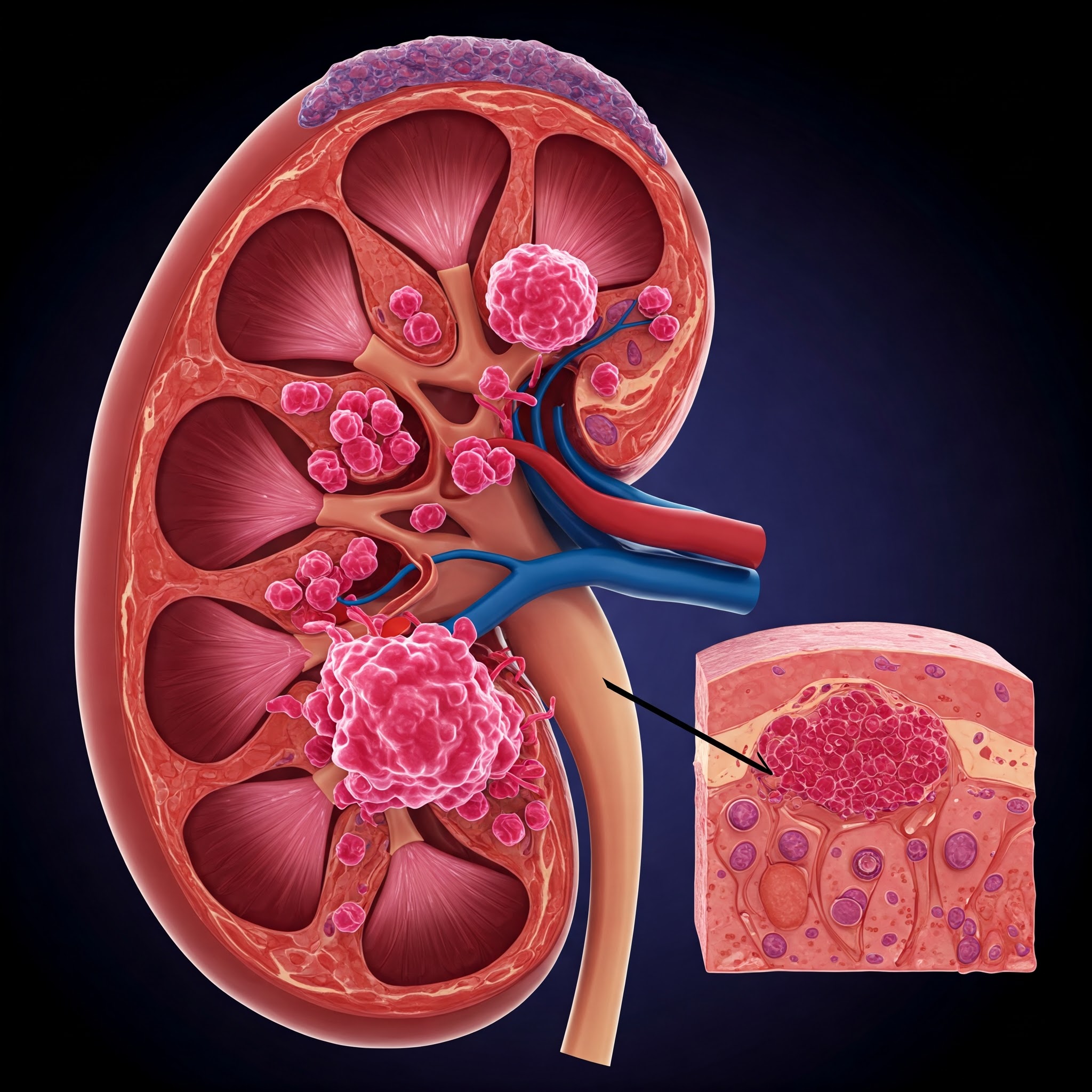Researchers at the Dana-Farber Cancer Institute report that after starting a customized cancer vaccination, all nine patients in a clinical study receiving treatment for stage III or IV clear cell renal cell carcinoma a kind of kidney cancer generated an effective anti-cancer immune response. The vaccines, which are intended to teach the body’s immune system to identify and eradicate any leftover tumor cells, were given following surgery to remove the tumor. All patients were still cancer-free at the median of 34.7 months, the data cut-off point.
Phase I clinical trials data published in the journal Nature.
We’re very excited about these results, which show such a positive response in all nine patients with kidney cancer.
Toni Choueiri, MD
This study was the result of a close partnership between our NeoVax team, our colleagues at the Broad Institute of MIT and Harvard, and our colleagues at the Lank Center for Genitourinary Cancer at Dana-Farber,
We are thrilled to report these results.
Catherine Wu, MD
Co-senior authors include: Patrick Ott, MD, PhD, head of the Center for Cancer Vaccines at Dana-Farber; and Derin Keskin, PhD, immunologist at the same institution. The primary author is Yale Cancer Center and Yale School of Medicine physician-scientist and medical oncologist David A. Braun, MD, PhD, previously of Dana-Farber and Harvard Medical School.
Surgery to remove the tumor is the standard of care for individuals with stage III or IV clear cell renal cell carcinoma. Pembrolizumab, an immune checkpoint inhibitor, can be used as immunotherapy after surgery. By triggering an immune response, pembrolizumab lowers the chance that the cancer will return. Nonetheless, there are currently few therapeutic options and a chance of recurrence for roughly two-thirds of individuals.
Patients with stage III or IV kidney cancer are at high risk of recurrence,
The tools we have to lower that risk are not perfect and we are relentlessly looking for more.
Toni Choueiri, MD
Choueiri and Braun administered a customized cancer vaccine to nine patients with stage III or IV clear cell renal cell carcinoma following surgery in their investigator-initiated study. Along with the vaccination, five patients also received ipilimumab.
The tumor tissue retrieved before surgery serves as a guide for the vaccines, which are customized to identify each patient’s unique cancer. The group identifies the molecular characteristics of the tumor cells that set them apart from healthy cells. These characteristics, known as neoantigens, are microscopic pieces of mutant proteins that are unique to the cancer and absent from all other bodily cells.
Based on their propensity to elicit an immunological response, the team employs predictive algorithms to choose which of these neoantigens to incorporate into the vaccine. After then, the vaccine is produced and given to the patient in two booster shots after a series of initial doses.
This approach is truly distinct from vaccine attempts in kidney cancer,
We pick targets that are unique to the cancer and different from any normal part of the body, so the immune system can be effectively “steered” towards the cancer in a very specific way. We learned which specific targets in the cancer are most susceptible to immune attack and demonstrated that this approach can generate long-lasting immune responses, directing the immune system to recognize cancer. We believe this work can form a foundation for the development of neoantigen vaccines in kidney cancer.
David A. Braun, MD
No higher-grade adverse effects were reported, however, some individuals had flu-like symptoms and others had local responses at the injection site.
The neoantigens targeted by this vaccine help steer immune responses towards cancer cells, with the goal to improve on-target efficacy and reduce off-target immune toxicity.
Toni Choueiri, MD
It was unclear whether this strategy would be effective in kidney cancer when the team started this study eight years ago. In melanoma, which has a lot more mutations and hence a lot more potential neoantigens, it has been demonstrated to have the potential to be beneficial.
However, there are fewer mutations in kidney cancer, which means there are fewer targets for the vaccination. The goal of this early phase study was to provide the researchers with as much information as possible about how the vaccine affects immune response to the tumor.
The scientists discovered through a number of investigations that the vaccination produced an immunological response in as little as three weeks, that the number of T cells produced by the vaccine grew by an average of 166 times, and that these T cells stayed in the body at high concentrations for as long as three years. The vaccine-induced T cells were also effective against the patient’s own tumor cells, according to in vitro research.
We observed a rapid, substantial, and durable expansion of new T cell clones related to the vaccine,
These results support the feasibility of creating a highly immunogenic personalized neoantigen vaccine in a lower mutation burden tumor and are encouraging, though larger scale studies will be required to fully understand the clinical efficacy of this approach.
Patrick Ott, MD
Source: Dana-Farber Cancer Institute
Journal Reference: Braun, David A., et al. “A Neoantigen Vaccine Generates Antitumour Immunity in Renal Cell Carcinoma.” Nature, 2025, pp. 1-9, DOI: https://doi.org/10.1038/s41586-024-08507-5.
Last Modified:
Graduated from the University of Kerala with B.Sc. Botany and Biotechnology. Attained Post-Graduation in Biotechnology from the Kerala University of Fisheries and Ocean Science (KUFOS) with the third rank. Conducted various seminars and attended major Science conferences. Done 6 months of internship in ICMR – National Institute of Nutrition, Hyderabad. 5 years of tutoring experience.






